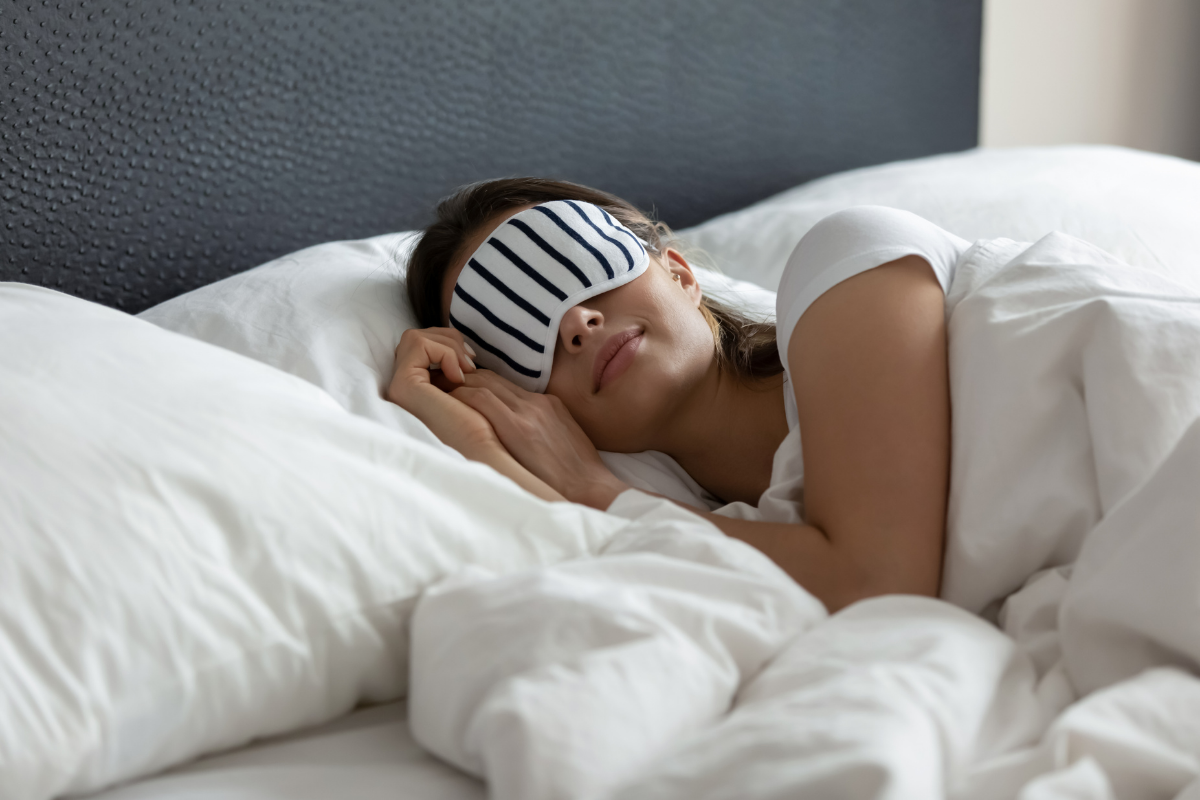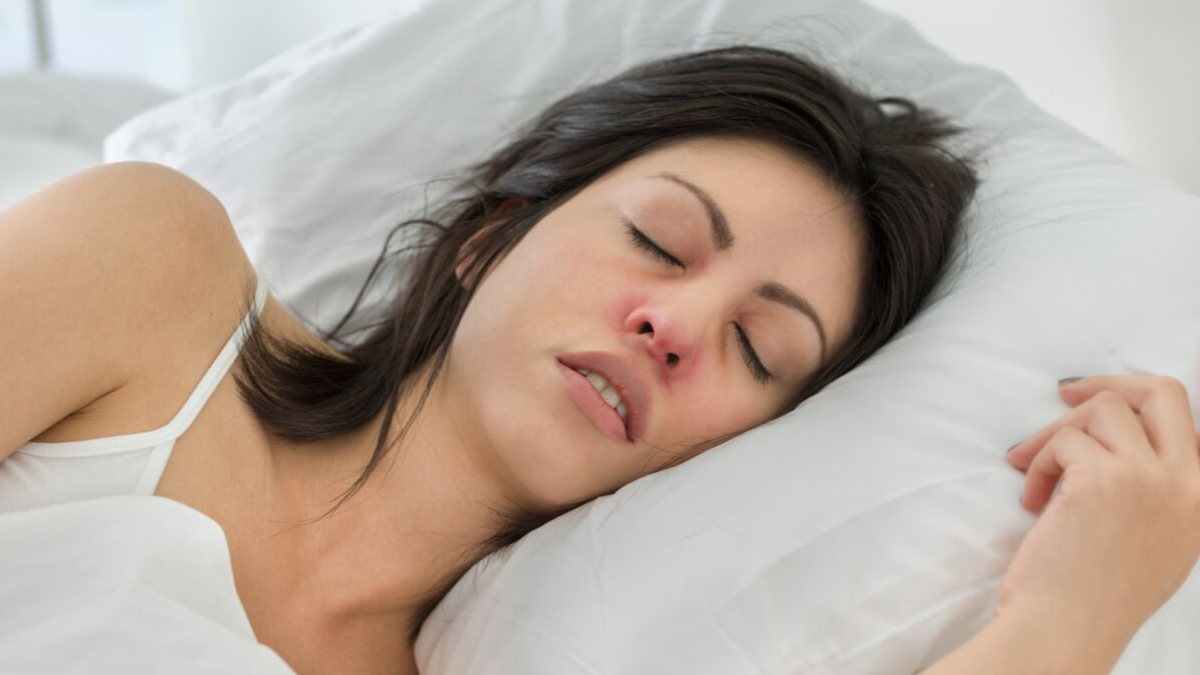
There are a number of activity trackers out there that calculate everything from the number of steps we take to how often we exercise. They also track our sleep. However, it is important to note that these trackers do not measure sleep directly. Instead, they are monitoring your inactivity and making a general estimate of your sleep habits.1 These estimates include average sleep duration, how often your sleep gets disrupted, and even phases of light and deep sleep. So what can you do with this data, and is it accurate?
What Is A Sleep Tracker?
Sleep trackers are wearable devices that monitor your physical activities, blood pressure, daily steps, and more. These trackers are built as a fitness accessory and can track sleep depending on your activities during the day. Although sleep trackers can keep track of all your vital activities, they have their limits when tracking sleep accurately.
What are the Benefits of Sleep Tracking?
- Detects interrupted sleep, letting you know when you’re tossing and turning or waking during the night
- The data retrieved can help to create better sleeping habits
- Helps you make informed decisions about your health
- Promotes awareness of the importance of sleep
How Do Sleep Trackers Work?
There are a wide variety of sleep trackers in the market that can keep track of your sleep. Some of these sleep trackers can be worn on the wrist while others can be clipped to the pillow or just sit on the bedside table.
Although the features may vary, here are some of the common things that all sleep trackers monitor to provide comprehensive sleep data:
Sleep duration: A sleep tracker tracks your activities and records them when you are asleep at night till you wake in the morning.
Sleep quality: The tracker detects interrupted sleep and lets you know if you were tossing and turning during sleep.
Sleep phases: Some tracking systems track the different seep phases of your sleep time. This also allows it to place the time of your alarm effectively during a time of less deep sleep.
Environmental influences: Some sleep trackers keep track of environmental factors like temperature and light in your bedroom.
Lifestyle factors: Some trackers prompt you to enter information about activities that can affect sleep, such as how much caffeine you’ve had, your stress levels, and what/when you’ve eaten.
How Accurate Is A Sleep Tracker?
The numbers on a sleep tracker are not always accurately presented. The information received by the users who use sleep trackers may be inaccurate and can create potential concerns if relied upon exclusively.
One of the main ways to showcase the inaccuracy of a sleep tracker is that if you spend several hours leisurely reading a book or scrolling through the phone, a sleep tracker registers as light sleep. Moreover, if you wake in the middle of the night and refrain from moving, the sleep tracker registers you are not awake.
Recognizing Sleep Patterns
Although sleep trackers cannot track sleep directly, they can recognize sleep patterns. For exact data of your sleeping habits, you’d have to take a sleep study. This type of test monitors your brain waves and analyzes your sleep cycles. These studies, like Sleep Care Online’s Complete Care Package, are actually helping in diagnosing sleep apnea.
Get More Accurate Results with a Sleep Test
If your sleep tracker is showing patterns of disruptive sleep, then you should consider it an indication that you may need to take a sleep test. These patterns of disrupted sleep may be the result of an underlying sleep disorder such as obstructive sleep apnea. Fortunately, you can take highly accurate sleep tests in the comfort of your own home. A telehealth visit with a sleep expert coupled with a home sleep testing kit from Sleep Care Online is the easiest way to confirm whether or not you have a sleep disorder.
What Is A Sleep Test?
A sleep test is a study that is prescribed to patients who are suspected to have sleep apnea or other sleep disorders. Traditionally a sleep test is performed overnight in a sleep study clinic and is based on appointment availability. This process is called Polysomnography.
Alternatively, one of the more convenient options is to take a home sleep test. A home sleep test can help you diagnose all sleeping disorders, mainly sleep apnea. A home sleep test kit includes the sleep test device, virtual consultation with a certified sleep physician, and a complete report of the test with a prescription for CPAP supplies if necessary.
Taking the Next Steps From Sleep Tracker to Sleep Test
Your sleep tracker may not be the only indicator of disruptive sleep. Chronic daytime fatigue, irritability, and lack of concentration or focus are common indicators you may have sleep apnea. Additionally, if your bed partner complains of loud snoring or observes a complete interruption in breathing, you may want to consider a home sleep test.
How to Test for Sleep Apnea at Home
Here are the steps to taking a home sleep test from Sleep Care online:
- With the Complete Care Package, schedule a 10-minute telehealth visit with a healthcare provider to discuss your symptoms, upcoming sleep study, test results, and treatment options.
- A multi-night, disposable home sleep apnea test is mailed to your home to be completed at your convenience.
- A physician analyzes the sleep data and provides a prescription if needed.
- Schedule an optional follow-up appointment (additional fee applies).
- We connect you to sleep experts who can offer customized sleep therapy options, assistance in equipment purchase, and initial set-up.
For more information on how to prepare yourself for a sleep test at home, click here.
How Do Home Sleep Tests Work?
Sleep Care online has simplified the process of home sleep testing for your convenience. While purchasing the Complete Care Package, patients will take a brief health & sleep survey online. We mail you a NightOwl disposable HSAT. Follow the instructions to take the test for sleep apnea at home, in the comfort of your bed. Data is ready to be analyzed the next morning.
During a second virtual appointment, your physician will review the test results, discuss therapy options, and write you a prescription. Our sleep experts will reach out to provide customized recommendations, facilitate equipment purchase and setup, and offer help and support to initiate sleep therapy.
If you are wearing an activity tracker, chances are you like to lead an active lifestyle. Neglecting signs of poor sleep could directly impact that lifestyle. If you think your sleeping habits may be indicating more, head to Sleep Care online. Don’t let a sleep disorder impact your health and your well-being. If you have questions, give us a call at 866-465-4478.
Reference:
- John Hopkins Medical Health. Do Sleep Trackers Really Work? Accessed October 2019.




